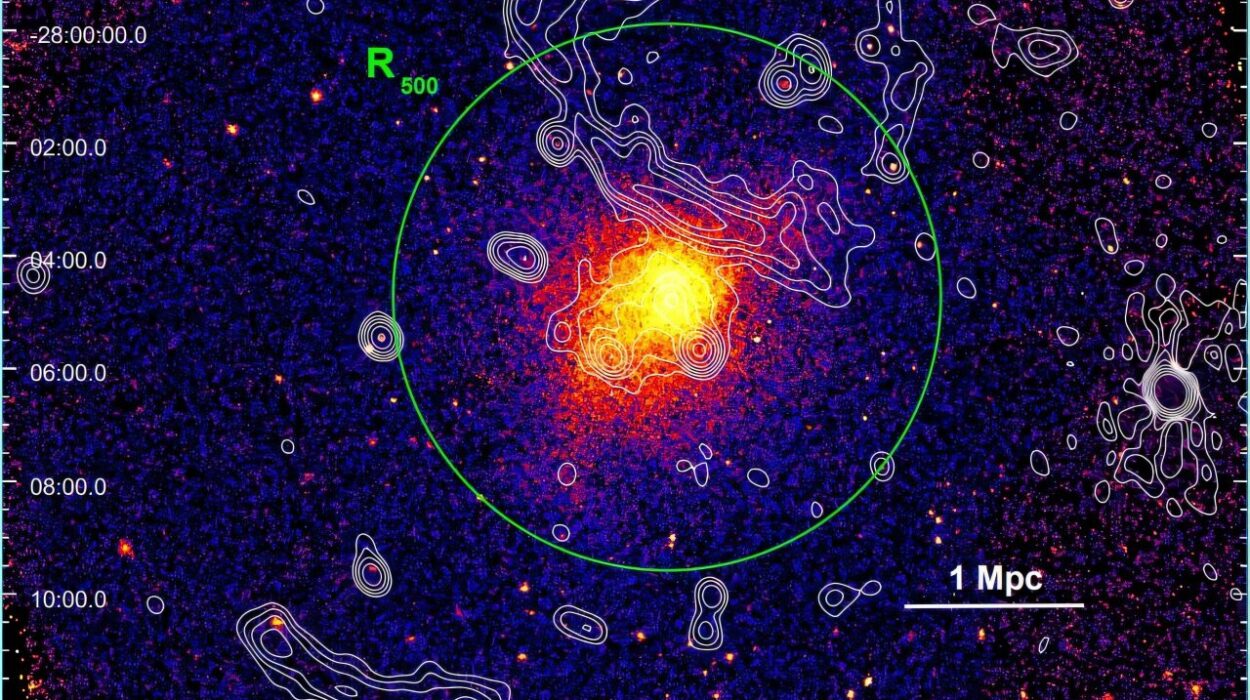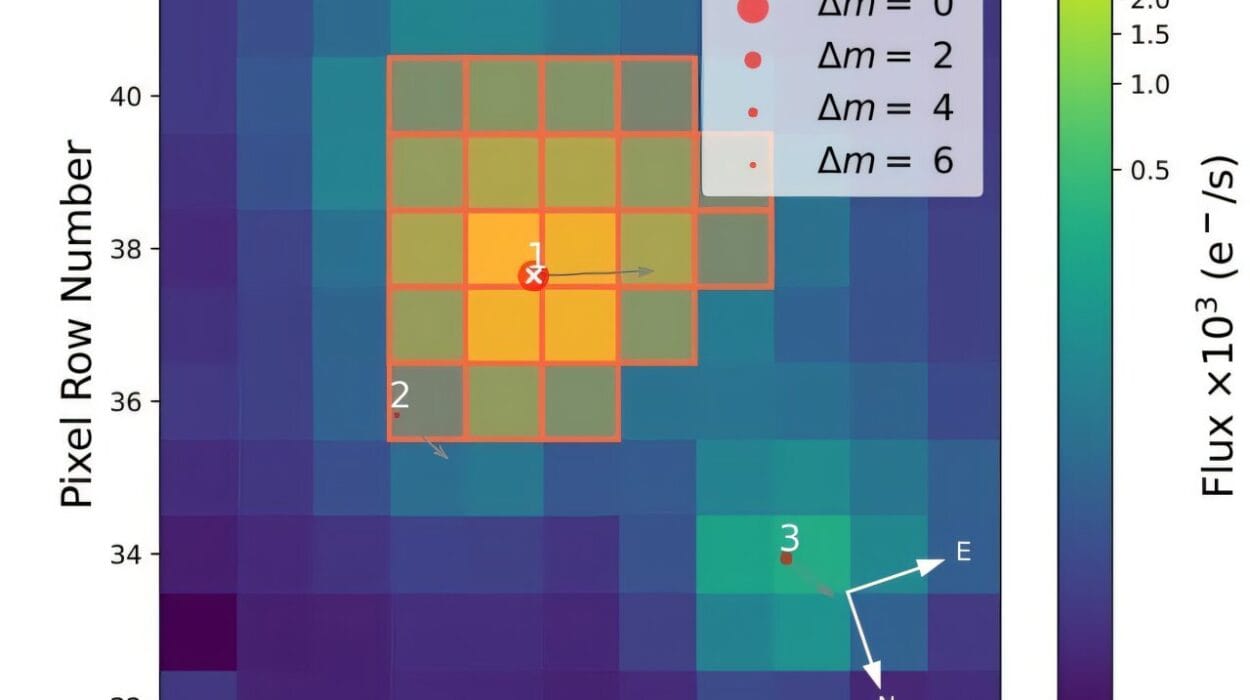On a warm summer day in 1950, while discussing extraterrestrial life with his colleagues at the Los Alamos National Laboratory, Italian-American physicist Enrico Fermi suddenly posed a question that has haunted scientists, philosophers, and dreamers ever since:
“Where is everybody?”
The question was simple, but its implications were staggering.
The universe is vast—unimaginably vast. With hundreds of billions of galaxies, each containing hundreds of billions of stars, many of which host planets, the odds of life existing elsewhere seem not just high—they seem inevitable. If intelligent life is common, and if even a few civilizations have developed interstellar travel or communication, shouldn’t we have encountered some sign of them by now?
And yet… we haven’t.
No signals. No probes. No ships. No footprints in the cosmic sand.
This is the essence of the Fermi Paradox: the contradiction between the high probability of extraterrestrial civilizations and the complete lack of evidence for their existence.
So where are they?
To unravel this riddle, we must journey through the depths of science, technology, philosophy, and even speculative fiction. We’ll examine the arguments for why life should be out there—and explore the sobering reasons why we might be alone.
Welcome to one of the greatest mysteries of the universe.
The Numbers Game: Why Life Should Be Everywhere
Let’s begin with numbers. The scale of the universe is almost beyond comprehension.
Our Milky Way galaxy contains more than 200 billion stars, and estimates suggest it may have as many as 100 billion planets. Zoom out, and you find that the observable universe holds at least 2 trillion galaxies, each potentially with its own collection of stars and planets.
Even if intelligent life is exceedingly rare—say, one intelligent species per million star systems—the universe should be teeming with civilizations. According to the logic behind the Drake Equation, which attempts to estimate the number of communicative civilizations in the galaxy, there could still be hundreds or even thousands of advanced alien societies right now.
So why haven’t we heard from even one?
The Speed of Light and the Tyranny of Distance
One reason we may not have found anyone yet is simple: space is really big.
The nearest star system, Alpha Centauri, is over 4 light-years away. That’s about 25 trillion miles. Even traveling at the speed of our fastest spacecraft, it would take tens of thousands of years to get there.
So, maybe the galaxy is teeming with life—but we’re just too far apart to know it.
But this doesn’t solve the paradox. Because even if travel is slow, signals travel at the speed of light. Radio waves from an alien civilization would have no trouble crossing the galaxy in tens of thousands of years. And the Milky Way has been around for 13 billion years—more than enough time for signals to arrive.
If aliens are out there, we should have picked up something by now.
So again, we ask: Where is everybody?
Possibility #1: We’re First
One potential answer to the Fermi Paradox is also one of the most humbling: we might be the first.
Maybe intelligent life is so rare and so difficult to evolve that Earth is the very first planet to do it in our galaxy—or even the entire universe.
This is known as the “early bird” hypothesis. The logic goes like this: sure, the universe is vast, but intelligent life might only emerge under extremely specific conditions. Perhaps it takes not just the right planet and chemistry, but the right series of evolutionary accidents—such as the asteroid that wiped out the dinosaurs and paved the way for mammals.
In this scenario, we are the trailblazers. The universe is not empty—it’s just waiting. Someday, a billion years from now, galaxies might be full of civilizations. But right now, it’s just us.
If this is true, it’s both awe-inspiring and terrifying. Because it means we are responsible for setting the tone of the cosmos.
Possibility #2: They Were Here… and Left
Here’s another possibility: we missed them.
Maybe intelligent civilizations arose millions or billions of years ago. They explored the galaxy, maybe even visited Earth—but that was long before humans appeared.
The universe is ancient. Our entire recorded history is only a few thousand years. Civilization, as we know it, is a blink of an eye compared to the lifespan of the galaxy.
If aliens came here 500 million years ago, we wouldn’t know. Any trace they left would be long gone—eroded by time, buried under continents, or turned to dust.
We could be living on what was once a bustling galactic highway, now long forgotten.
Possibility #3: They’re Listening, Not Talking
Maybe we haven’t heard from aliens because they don’t want to talk.
Consider Earth. For the last century, we’ve been broadcasting radio signals into space—leaking our TV shows, military radar, and music into the cosmos. But we’re now shifting to cable, fiber optics, and laser-based communications—much less detectable from space.
It’s possible that civilizations go through a brief “radio-loud” phase—maybe only a few hundred years long—before becoming silent.
So, aliens might be listening. And we’re listening. But no one’s talking.
This is the “everyone’s eavesdropping” hypothesis. If all civilizations are cautious or quiet, the galaxy could be full of listeners, each waiting for someone else to speak first.
And maybe, just maybe, we’re all waiting… forever.
Possibility #4: They’re Too Alien
What if we simply don’t recognize the signs of alien life?
We expect aliens to use radio signals. We expect them to build Dyson spheres, giant star-encompassing megastructures. We expect them to live in places we’d recognize as habitable.
But what if they don’t?
What if they use quantum entanglement to communicate? What if their minds exist in dimensions we can’t perceive? What if they are software—digital intelligences drifting through interstellar networks, bypassing stars entirely?
In this view, alien life could be all around us—but we’re too primitive to understand it. Like ants trying to comprehend a freeway, we simply don’t have the tools or perception to detect advanced intelligence.
This raises a chilling question: What are we missing?
Possibility #5: The Great Filter
One of the most disturbing explanations for the Fermi Paradox is the idea of the Great Filter.
The Great Filter is the idea that somewhere along the path from simple matter to intelligent life, there is a nearly impossible hurdle—a stage so difficult that almost no civilization makes it past.
If the filter is behind us—say, in the leap from single-celled to multi-celled life—then we may be among the lucky few who passed the test. That would mean intelligent life is rare, but we made it.
But if the filter is ahead of us—say, in the transition to a space-faring civilization that doesn’t destroy itself—then we’re in trouble.
This would mean that most civilizations reach a point of power (nuclear weapons, AI, environmental collapse) and then wipe themselves out.
In that case, the silence of the cosmos is not peaceful—it’s a graveyard.
Possibility #6: They’re Avoiding Us
This leads to another eerie thought: what if they know about us… but choose not to make contact?
This is the basis of the “zoo hypothesis”. In this view, Earth is like a wildlife preserve, and alien civilizations are observing us from afar, choosing not to interfere—just as we might watch animals in a national park.
Perhaps they’re waiting for us to evolve further. Or they’re protecting us from cultural contamination. Or maybe, we’re simply not interesting enough yet.
Another variant is the Dark Forest Theory, popularized by science fiction author Liu Cixin. In this view, the universe is a dark forest, where every civilization is a hunter—armed, hidden, and afraid. To reveal yourself is to risk destruction.
Because if you encounter an unknown intelligence, and you don’t know its intentions or capabilities, the safest strategy is to stay quiet… and eliminate any threat.
In a dark forest, silence is survival.
Possibility #7: They’re Already Here
Perhaps the most provocative explanation for the Fermi Paradox is that they’re already here—and we just don’t know it.
Some believe aliens walk among us in disguise. Others suggest they are monitoring us with invisible probes. Some fringe theories claim that UFO sightings are evidence of alien visitation.
While mainstream science is skeptical of these claims, the recent resurgence of interest in Unidentified Aerial Phenomena (UAPs) has reignited public fascination.
Could aliens be studying us up close? Are they influencing human history subtly? Are they living in the oceans, underground, or in dimensions beyond our understanding?
It’s unlikely—but not impossible. And if true, it would make the Fermi Paradox not a question… but a cover-up.
The Fermi Paradox in Culture
The mystery of alien silence has inspired generations of writers, filmmakers, and thinkers.
From Arthur C. Clarke’s monoliths in 2001: A Space Odyssey, to the tragic end of advanced civilizations in The Three-Body Problem, to the eerie quiet of Arrival and Contact, our art reflects our hope—and fear—that we are not alone.
The paradox touches on existential questions: What is our place in the cosmos? Are we a cosmic fluke, or a seed of something greater?
It also forces us to confront our own trajectory. Will we survive long enough to explore the stars? Or will we vanish before we ever make contact?
What Are We Doing to Solve It?
Today, the search for extraterrestrial intelligence (SETI) continues. Scientists scan the sky for unusual radio signals, search for exoplanets with biosignatures, and look for evidence of alien megastructures.
New missions, like the James Webb Space Telescope, allow us to peer into exoplanet atmospheres. AI systems sift through cosmic data for anomalies. Private initiatives like Breakthrough Listen aim to listen harder and farther than ever before.
Some researchers are even building probes to reach other star systems—like Breakthrough Starshot, which aims to send tiny spacecraft to Alpha Centauri using solar sails propelled by lasers.
At the same time, thinkers debate whether we should be sending messages. Some fear that revealing our presence could invite danger. Others believe it’s time to say hello.
Final Thoughts: What If We Are Alone?
If we are truly alone in the universe, what does that mean?
It means we are rare. Precious. Perhaps the only conscious beings capable of understanding the cosmos.
That would place an enormous responsibility on our shoulders—to survive, to explore, to preserve life, to reach out.
But if we’re not alone—if others are out there—it means we have neighbors. Companions. A future where we might someday share stories across the stars.
Either way, the Fermi Paradox is a call to action. A reminder that the universe is vast, and our moment within it is brief.
We may not have the answers yet. But we are listening. Searching. Wondering.
And perhaps, one day, we’ll look up at the sky, and a message will arrive. A whisper across the darkness.
And we’ll finally know: we were never alone.






